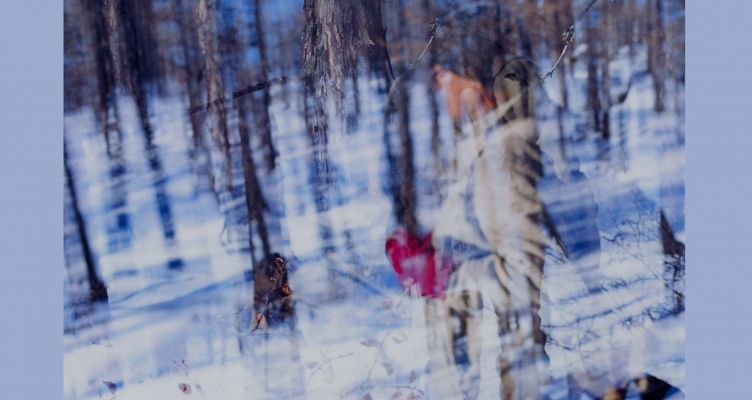Evenki microcosm: Visual analysis of hunter-gatherers’ lifestyles in eastern Siberia

This experimental book is about the Evenki hunter-gatherers of Siberia. Through innovative visual methodology it reveals that despite an old stereotype of that lifestyle being a part of humanity’s past, it is probably in humanity’s future. In six chapters filled with a flow of photographs that cover such topics as shamanic rituals, hunting, foraging, reindeer herding, the application of new technologies and jade mining, the authors show that hunter-gathering is not a primitive way of survival, but a complex and open-to-change philosophy of life that is embodied in everyday practices. Photographs allow readers to immerse themselves in the most profound layers of human experiences, and astute ethnographic and analytic summaries help them navigate the world of the taiga, where people are neither conquerors of natural forces nor passive consumers of resources. The book will be of interest both to social anthropologists and general readers curious about life in unfamiliar places.
Tatiana Safonova is a social anthropologist originally specialized in environmental issues as well as the study of Evenki communities, recently conducting research in Hungary on relations between people, plants and the national state. Istvan Santha is a researcher from the former Hungarian Academy of Sciences and a social anthropologist proficient in the study of Siberian hunter-gatherers and cattle-breeders. He has recently embarked on an anthropological study of WWII memories in Hungary.
Tatiana Safonova and István Sántha. Evenki microcosm Visual analysis of hunter-gatherers’ lifestyles in eastern Siberia.
2019, Fürstenberg/Havel: Kulturstiftung Sibirien, 173 Seiten, 80 Farbseiten, 19 x 27 cm
ISBN: 978-3-942883-36-8
Euro 48; paperback
This experimental book is about the Evenki hunter-gatherers of Siberia. Through innovative visual methodology it reveals that despite an old stereotype of that lifestyle being a part of humanity’s past, it is probably in humanity’s future. In six chapters filled with a flow of photographs that cover such topics as shamanic rituals, hunting, foraging, reindeer herding, the application of new technologies and jade mining, the authors show that hunter-gathering is not a primitive way of survival, but a complex and open-to-change philosophy of life that is embodied in everyday practices. Photographs allow readers to immerse themselves in the most profound layers of human experiences, and astute ethnographic and analytic summaries help them navigate the world of the taiga, where people are neither conquerors of natural forces nor passive consumers of resources. The book will be of interest both to social anthropologists and general readers curious about life in unfamiliar places.
Tatiana Safonova is a social anthropologist originally specialized in environmental issues as well as the study of Evenki communities, recently conducting research in Hungary on relations between people, plants and the national state. Istvan Santha is a researcher from the former Hungarian Academy of Sciences and a social anthropologist proficient in the study of Siberian hunter-gatherers and cattle-breeders. He has recently embarked on an anthropological study of WWII memories in Hungary.
Erscheinungsjahr: 2019
Priorität: 0
This experimental book is about the Evenki hunter-gatherers of Siberia. Through innovative visual methodology it reveals that despite an old stereotype of that lifestyle being a part of humanity’s past, it is probably in humanity’s future. In six chapters filled with a flow of photographs that cover such topics as shamanic rituals, hunting, foraging, reindeer herding, the application of new technologies and jade mining, the authors show that hunter-gathering is not a primitive way of survival, but a complex and open-to-change philosophy of life that is embodied in everyday practices. Photographs allow readers to immerse themselves in the most profound layers of human experiences, and astute ethnographic and analytic summaries help them navigate the world of the taiga, where people are neither conquerors of natural forces nor passive consumers of resources. The book will be of interest both to social anthropologists and general readers curious about life in unfamiliar places.
Tatiana Safonova is a social anthropologist originally specialized in environmental issues as well as the study of Evenki communities, recently conducting research in Hungary on relations between people, plants and the national state. Istvan Santha is a researcher from the former Hungarian Academy of Sciences and a social anthropologist proficient in the study of Siberian hunter-gatherers and cattle-breeders. He has recently embarked on an anthropological study of WWII memories in Hungary.
